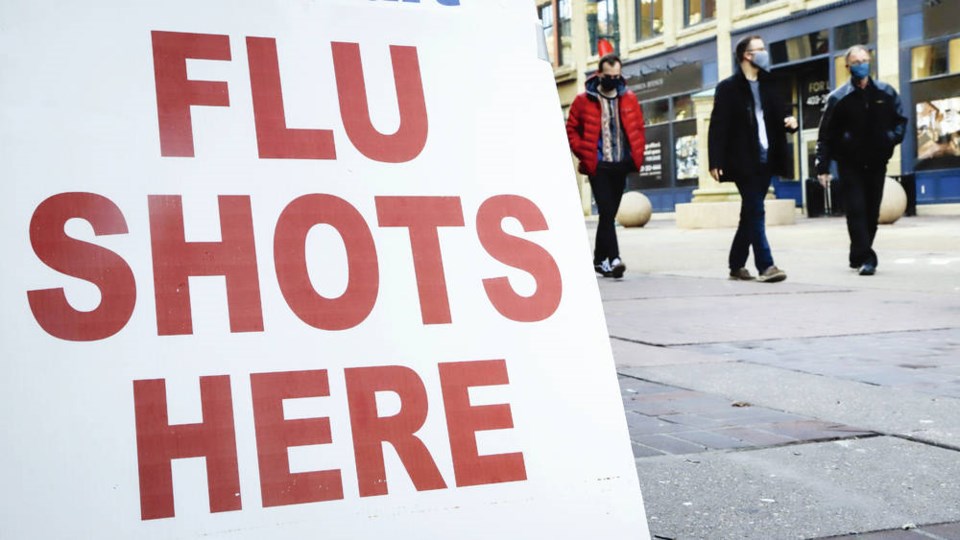Well, this past flu season has been a bust — not that anyone is complaining.
In fact, with no evidence of community circulation of influenza across Canada at all over the past five months, we can’t even say a 2020-2021 flu season occurred. In the first week of November, for example, not one province or territory reported a single patient hospitalized with flu, whereas during the same week a year earlier, 60 people had been.
A total of 121 outbreaks of influenza-like-illness were reported in Canada by early March but no laboratory-confirmed outbreaks of influenza — despite more than twice as many people being tested for flu than in a typical year. Worldwide, as many as five million people fall seriously ill from influenza every year, and hundreds of thousands die. It caused the deaths of 8,500 Canadians in 2018, and in normal years, it kills about 3,500 Canadians on average and puts more than 12,000 in hospital.
Other countries also report near-non-existent caseloads this year. In New Zealand, flu infections were down more than 97 per cent over the year before. Australia’s lab-confirmed cases were down 93 per cent. At the end of February, the United Kingdom reported there had been not one flu case in the country since early January. South Africa also gave flu season a near-total miss this year.
Well, good for all of us. We’ve had enough to deal with this year. Good for the doctors, nurses, clinics and hospitals who have had other concerns this year. Good for the people who would otherwise have been felled or disabled by flu.
Of course, we were all rather preoccupied with another virus, whose death tally of some 22,500 in Canada alone over the last year has swamped the flu statistics. In our efforts to avoid COVID-19 — donning masks, washing our hands, avoiding getting close to people outside our households, delaying out-of-country travel, and so on — we put the brakes on most other infectious respiratory illnesses too.
This suggests that many of the deaths tied directly or indirectly to influenza in all those previous years actually could have been avoided. It means that our long-standing acceptance that flu will take away some seniors and other vulnerable people every year — “what can you do?” — is misguided. The past year has shown that we’ve been sacrificing thousands of our grandparents and neighbours to the flu virus every year for decades.
Our complacency around flu deaths and complications has been unacceptable.
This is not to say that the economy or travel should come to a screeching halt every fall to prevent the spread of flu as was mandated for the current pandemic.
We can, however, learn from the past year’s pain and trouble, and we can apply those hard-won lessons more broadly and more humanely.
The common-sense precautions to prevent COVID in long-term care homes could be employed to dampen influenza’s spread to those vulnerable members of our community. This includes staffing that limits transmission between facilities, daily health checks of staff and visitors, and use of masks and gloves when illness does enter a facility.
For the rest of us, wearing masks in public indoor spaces and maintaining our frequent-handwashing habits during flu season would help to keep ourselves and our families free from the virus.
Not everyone would make the effort, of course. But enough might that future flu seasons will see less illness, fewer complications and fewer people dying.
This, of course, presumes a fairy-tale scenario in which the coronavirus that has overturned our world this past year eventually disappears, leaving only old familiar influenza for us to grapple with.
All the research points to COVID-19 sticking around and becoming part of our general health landscape. Vaccines will help make it less deadly, not vanquish it. New variants, such as those that have already been picked up in B.C. and across Canada and the world, will continue to emerge and challenge our precautions.
Eventually, COVID-19 might evolve to become less infectious and less deadly, but we cannot count on that.
In all likelihood, future flu seasons will also include coronavirus and all the risks that that entails.



